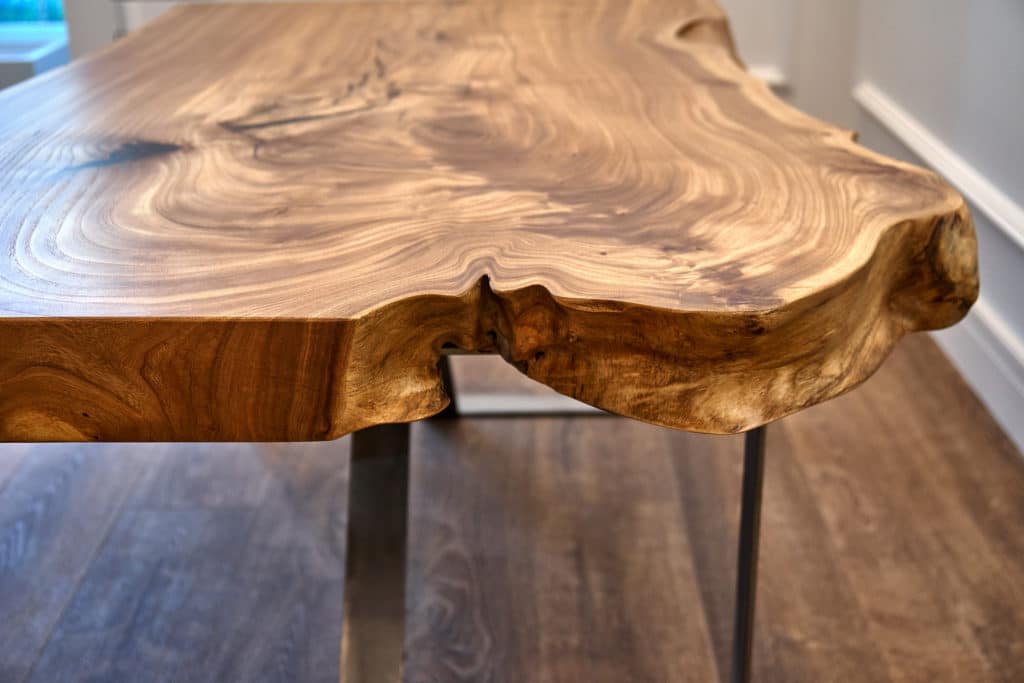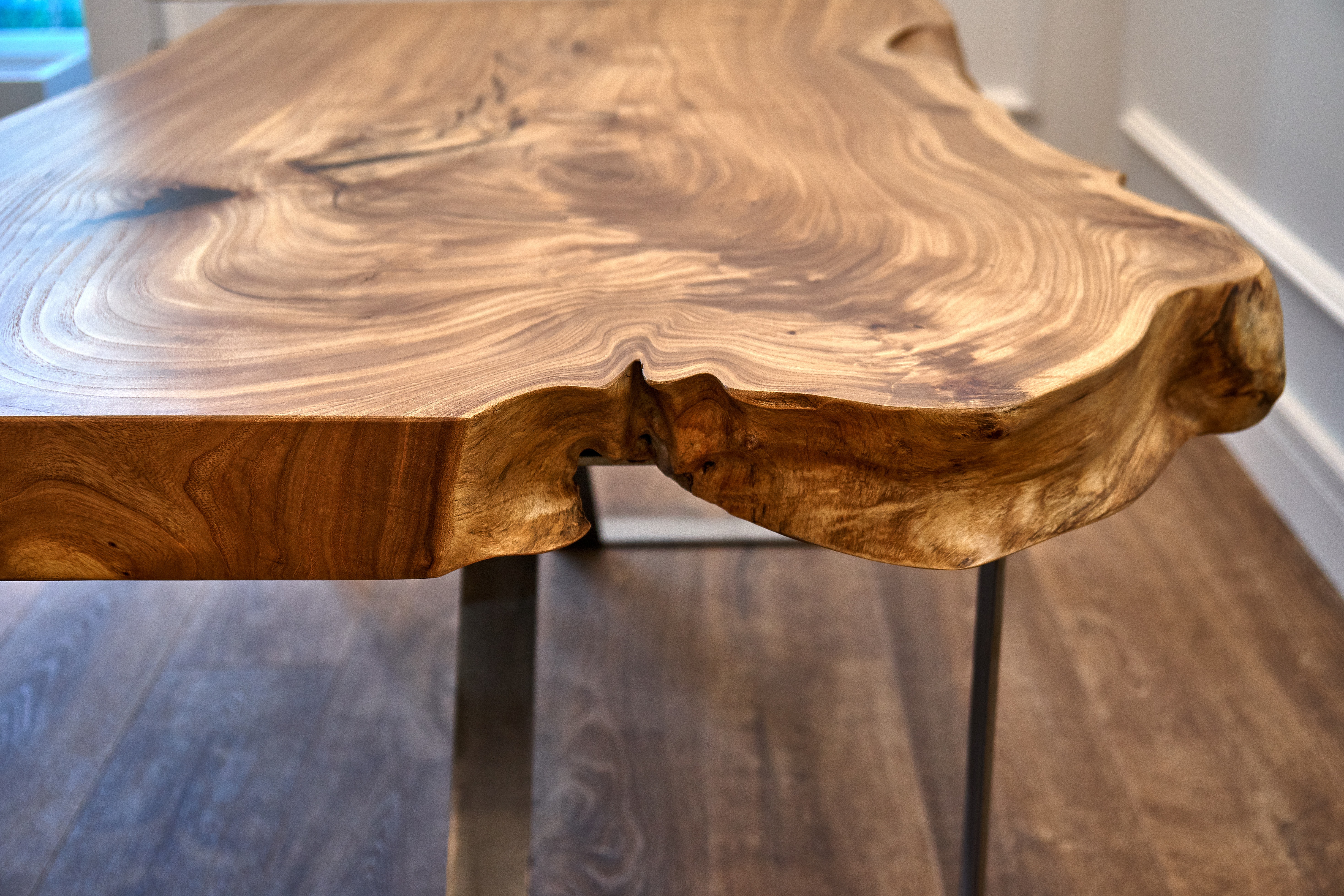
If you’re looking for furniture that will bring the WOW factor to your living space, a live edge table might be the choice for you.
Live edge tables have existed since people began making furniture. They were a cost and time effective way to build functional, sturdy furniture that would last a lifetime. Settlers turned the raw wood slabs into tables, chairs, and beds while building their homesteads.
In 1946, an award-winning architect and designer named George Nakashima included live edge designs in his collection for Knoll. They immediately began appearing in modern homes and have increased in popularity ever since.
The past decade especially has seen live edge tables on an upward swing as big-name interior designers demonstrate their use as show-stopping pieces.
The style is not just limited to the home; it can be found in offices, restaurants, and more.
Though this style of furniture is becoming increasingly common in modern spaces, not everyone is familiar with it. So here’s everything you need to know before picking out your new live edge table.
What are live edge tables?
The term “live edge” refers to the natural edge left on at least one side of a piece of wood.
Rather than the sharp, clean lines in more traditional wooden furniture, live edge retains the natural beauty of the tree. Other natural characters of the wood, such as knots and cracks, are often left the way they are to become beautiful features of the live edge table.
Live edge designs help you bring the outdoors into your home in the form of functional, modern furniture.
Live edge tables are handcrafted by woodworkers who have dedicated years to the craft. The table is cut, sanded, and finished by hand to create a top quality work of art.
Each live edge table is an original, one of a kind piece. There’s a huge number of options when it comes to picking your table including the species, wood cut, colors, and more.
What to look for in a live edge table
When it’s time to go shopping for your new masterpiece, it can be a bit overwhelming deciding between the various options.
Here are some of the more common features you’ll come across.
Wood cuts
Slab
A wood slab is cut lengthwise from the tree and will usually have a live edge on both sides. Due to the length, this is the most traditional option for coffee and dining room tables.
Slices
A wood slice, or tree round, is cut horizontally from the tree. The slice will have a live edge all the way around and beautifully displays the growth rings. This type of cut is most commonly used for side tables.
Burl
Burl tends to be one of the most expensive options. Some trees have a large rounded outgrowth as a result of a deformity, called a burl. Burl wood is highly prized for stunning grain patterns and unique, bumpy edges.
Features and traits
Bowties
Bowties, also known as butterflies, are inlaid pieces of wood across a crack in the table top. They prevent the crack from getting wider while adding another beautiful element to the finished piece.
Bark, or no bark?
Depending on the type of table and wood used, the craftsman will decide whether to leave the bark on or take it off.
It’s somewhat more common for the bark to be removed and edges sanded down slightly.
Will a live edge table fit in with your decor?
Long gone is the myth that natural wooden furniture only belongs in remote cottages. Live edge tables have an ageless design that will always belong no matter how many times you redecorate your home.
From rustic country home to modern, minimalist spaces, live edge tables will complement their surroundings.
Wood conveys a sense of warmth and life that will bring a feeling of comfort to the room. The natural flow of a live edge table adds movement to an area full of straight lines and sharp corners.
The neutral tones of wood rarely clash with decor and the wood grain patterns make the table a natural work of art.
Live edge furniture is becoming increasingly popular in both home and commercial settings. Check out what your favorite interior designers have been up to and you’ll likely spot pieces of natural wood furniture.
What else can be made with a live edge?
Just about anything made from wood can retain more of its natural wonder.
Live edge tables are just one of the many options quickly growing in popularity. Wall hangings with a live edge range from mirrors to clocks and abstract decor pieces.
You can get headboards, countertops, and stools made with the same craftsmanship of live edge tables.
Coasters, cutting boards, bowls….the list is endless!

